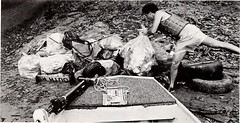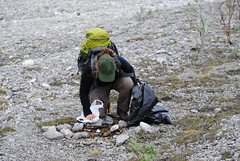There is a ton of use for plastic bags. They help us bring home the groceries, reuse them as trash bags for smaller trash cans or even reuse them to transport items. Sadly, most of plastic bags end up on the streets, in lakes or in rivers. They could end up anywhere.
Studies have showed that 79 percent of all plastics are in a dump, a landfill and especially the environment. Only nine percent of plastics have been recycled.
Not properly disposing plastic bags can do a lot of damage, believe it or not. They can clog sewer drains and systems, which leads to floods. Also, they are killing birds and harming marine life by plastic bags being in the water.
“Plastic bags can create breeding grounds for mosquitoes and can leach toxic additives such as styrene and benzene as they decompose,” a professor of international environmental law, said.
By banning plastic bags we can push super markets to get biodegradable bags which will decompose with the elements of the Earth if it is thrown out. In Sicily, their bags are made out of cornstarch which will decompose over time. A lot of stores there use those bags, especially super markets.
Sophomore Amanda Lynn, a Pre- k- four education with special ed major does her best by keeping our earth clean.
“I recycle all of my water bottles that I drink in my dorm,” Amanda Lynn a Pre- k- four education with special ed major said.
In Antigua Barbuda, they put a ban on some plastic things like foam coolers and plastic utensils. Another law is Kenya’s plastic bag law, which will punish violators with a fine up to $38,000 U.S. dollars and could also include jail time.
States and regions have already started to make policies to put band on all plastics. a professor of international environmental law said,
Sophomore Cam Mousley cares about the earth. “If there is trash in my car I wait until I find the next trash can to through it out.” Sophomore Cam Mousley, a business management major, said.
“In East Africa Legislative Assembly passed a bill to ban the manufacture, sale, import and the use certain plastic bags.”
Recently in October 2018 the European Union Parliament have banned plastic and set goals. They hope to ban plastic bags by 2021, reduce plastic food packaging by 2025 and reduced plastic content cigarette filters by 2030.
As of right now most of the action is happening overseas. What we need to do is to be more cautious on where we throw our bags and recycle proper materials. If we don’t take action there will be major effects to our Eco-systems which there is already.




